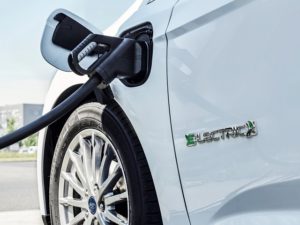Government rejects calls to rethink company car tax and petrol/diesel ban
The Government has responded to MPs’ calls for the 2040 ban on the sale of ‘conventional’ petrol and diesel vehicles to be brought forwards as it also says that current and future BiK rates already provide a strong incentive for drivers to choose the cleanest cars.

The Government has rejected calls to bring forwards the 2040 ban on sales of conventional petrol and diesel cars and vans
The calls from MPs on the Business, Energy and Industrial Strategy Committee were published in last October’s ‘Electric vehicles: driving the transition’ report , which said that the 2040 target was “vague and unambitious” and must be brought forwards to 2032, backed up by meaningful purchase incentives and a truly nationwide charging infrastructure.
Speaking at the time, Rachel Reeves MP, chair of the Business, Energy and Industrial Strategy Committee, said: “If we are serious about being EV world leaders, the Government must come forward with a target of new sales of cars and vans to be zero emission by 2032.”
The Government has now published its response, saying that 2040 is “an ambitious but achievable target and this Government believes it is a key part of the answer to the UK’s long term transport air quality and greenhouse gas issues”.
The document adds that the “Government has consulted extensively with stakeholders across numerous sectors including environmental groups, the automotive industry and other experts and believes it has identified the right balance between environmental ambitions, deliverability and behavioural changes, giving consumers and industry time to transition supported in the coming years by the measures set out in the Road to Zero strategy.”
It continues to say that the transition could “conceivably happen much quicker than 2040” but added that it would be actively tracking market developments and would “consider what interventions are required if not enough progress is being made”. This answer was also used in response to MPs’ recommendation that EV prices be made more competitive with conventional cars and vans.
Meanwhile, the Government has also said it believes “company car tax is explicitly designed to make it more attractive for employers and employees to choose cars which emit the lowest levels of carbon dioxide emissions”. Commenting in response to BEIS calls for preferential CCT rates to be brought forwards, the Government said that drivers in the current and next tax year already receive a significant discount for choosing a low or ultra low emission vehicle and the rates from 2020-21 will drive this further.
The response adds: “There is only limited evidence to suggest that the current company car tax rates are causing drivers to delay the decision to choose ultra low emission vehicles today.”
And it says: “The Government aims to announce company car tax rates at least two years in advance of implementation to provide certainty to employers, employees and fleet operators. Unwinding previous announcements, or making changes to announced rates, could undermine this certainty.”
The Government response on the 2040 target has been slammed by EV rapid charging specialist Engenie. CEO Ian Johnston said: “By rejecting calls to bring the petrol and diesel ban forward from 2040 to 2032, the Government has failed to set a timeline for the transition to low-emission vehicles that prioritises the health of its citizens.”
And the BVRLA has decried the company car tax response. Chief executive Gerry Keaney said: “By failing to change the tax regime now to incentivise the uptake of electric vehicles, government is missing the opportunity to drive change quickly. It is disappointing to see an ongoing lack of alignment between its taxation policy and its wider environmental ambitions.”
Latest new car registration figures also indicate that further action is needed. The SMMT data for last year shows that although registrations of plug-in cars reached record levels in 2018, demand is falling behind the EU average as incentives are pulled. This includes for plug-in hybrids; although PHEVs saw a strong uplift (+24.9%) over the year, the figures suggest growth is slowing following the removal of the Government’s plug-in car grant for these vehicles in October.












